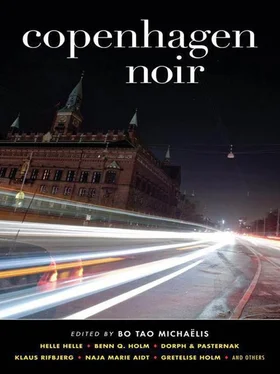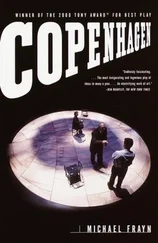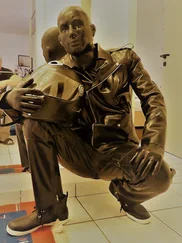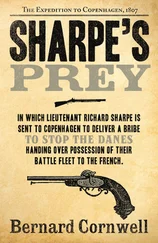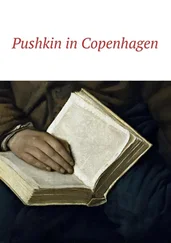“And what about love?”
He’d never answered Granberg’s question, mostly because there was nothing to say. When everything turned bleak and black, Granberg used to remind him: “And what about love? Love can make the impossible happen!” There was nothing to say to that. Love is a flame that suddenly appears in a dark room-and then it disappears. He would never say that love could save us, it certainly couldn’t bring Mats Granberg back to life.
Death and time, love and the abyss.
Nils Forsberg had been a police officer his entire adult life. He’d never married nor become a father. He’d become a police officer, and he knew only two kinds of people: those who committed crimes and those who searched for the people who committed crimes. Obviously that’s a precarious situation-an unofficial health statistic published by the police authorities themselves states that more than 25 percent of police in active service find that they drink more than they should, while the average for the rest of the population is 4 percent. Also, suicides and divorces are overrepresented. To enter the abyss has its price, and it’s paid for in life, in time. To be the Virgil of our times, to step down into the inner circles of hell with only a lantern, very quickly takes its toll. It very soon grows lonely and dark.
Time is the master of death. Time is a flash of light in a dark forest. Time is kaleidoscopic: it’s what’s keeping you painfully awake locked in a cell with a hangover-it’s what’s whiled away during a conversation along Strandpromenaden in Malmø. Whoever owns time conquers death. Nils Forsberg often thought that it was a kind of irony of fate that the center of the city, the very inner kernel of Malmø, was occupied by a cemetery, a place where time is suspended and at the same time fixed. He frequently ended up in the cemetery on his walks. He would buy a cup of coffee at the newsstand café on Gustaf Adolf’s square and sit down among the other retirees, the ones who also lived in this no-man’s-land. He always mixed the hot coffee with the liquid from his hip flask. But it had been a long time since he last took a walk. A great exhaustion had besieged him.
Forsberg used to spend days and evenings on the benches in the cemetery. It was an absurd feeling sitting there, absorbed in rest, while buses and taxis passed by. He’d heard voices. Shouts. All the sounds of the city.
Here they all were, the dead he’d learned from when they were still alive, the ones who could no longer answer when he talked to them. He’d come to the cemetery when Granberg’s ashes were spread. Then he’d kept going back there for several days-probably not more than a week-until he could no longer do it, and the alcohol took over. He’d drowned himself from the inside out. The only people he was really able to talk to were the homeless whom he met on his random wanderings. They understood this particular condition, when you are suspended between life and death and lack any kind of anchor, when you are simultaneously hanging and falling, living at the outer edge of everything.
There are times when we want to escape, and times we want to hold on.
Greger’s Antiquarian Bookstore is just a short walk from the cemetery. Forsberg no longer goes there, nor to the Catholic church situated in the same area as the store. It feels like swimming against the current. Every thought and feeling contains endless resistance. Nils Forsberg spends his time in his own rooms, drinking, sleeping, dreaming, screaming, beating the walls. He writes a couple of lines in a notebook, draws what looks like a map, sorts papers and books. Again and again he arrives at one and the same name.
Nils Forsberg imagines that he’s following a trail, that he has an assignment. To anyone on the outside it’s obvious that we’re looking at a human being who’s lost all ability to act like a human being. He’s chasing the wind, a phantom. He sees a fundamental problem. It has to do with a pattern and intentions. It has to do with probabilities. The important question is: is it possible to see what’s going to happen? Yes, Nils Forsberg answers himself, if you can see what’s already happened.
Forsberg had thought a lot about Greger lately. In between the alcohol attacks, and during moments of clarity, it occurred to him that he should have gone there, that he ought to have visited Greger in his bookshop in the basement, at least shown him that he too was struggling. But he’d just not had the energy. Nils Forsberg simply sank. Of course, he also should have settled all his small debts. He didn’t do it. Sometimes he had the same dream, a recurring dream he’d had this past year: He was by a lake, the water was still, lake water, black water. The forest surrounded him, sighing, alive. In the middle of the lake floated a naked body, facedown. It was important, he had to get there, into the middle of the lake-but he couldn’t move. He saw the body, how it tipped downward, more and more until it completely disappeared-and then he screamed out into the silent forest. The dream kept coming back to him. It wouldn’t leave him alone. There was something that should have been said. He never got there in the dream. The naked body floated on in the black water.
The wind grew stronger, heavy rain-wet snowflakes spun through space and immediately melted away when they touched the ground. Nothing lasts forever.
Even when there were memorial services for people completely unknown to him, Forsberg still sat there. It was as though all the dead belonged to him, as though he carried so much grief that he was forced to unload it onto other people as well.
It’s January, and the rain comes sliding in over town, then blows off again. The homeless people look for refuge, in gateways, public shelters, bicycle storage rooms, huddled together in small camps, seeking protection from the violence, the gangs who come at them with bicycle chains and sticks. House façades are deteriorating, tree trunks are rotting. Forsberg has expanded his two earlier categories-those who commit crimes and those who have to prevent crimes-with those who long to get away and those who long to go home.
We want to be everywhere we’re not. That’s one of the reasons Malmø forces itself into a state of anonymity, of having no history. The new city has no room for the ugly, the limited, that which reminds us of the passing of time, of work and death. That which makes us what we are: live human beings.
We do not want to be broken, changed. It makes Nils Forsberg think of a flickering flame in a dark room. Life is like that.
Violence. Cruelty.
Faceless, meaningless, cruel violence runs through the city like quicksilver, pulsating, forcing out opinions, points of view. All the places Nils Forsberg loved had in some way been left to themselves: churches, libraries, parks, antiquarian bookstores. They were places that were in some ways open, in other ways-finished. They were places where there was room for the abandoned, the leftovers. Of all these places, it was especially the antiquarian bookstore that attracted Nils Forsberg. That’s where he felt at home, and often he thought about what this might mean. Why just antiquarian bookstores? Perhaps it had to do with the curious fact that time became a paradox within these rooms. It was both past and present, one layer on top of another, and unlike at a museum, it was possible to touch and smell everything. Every book carried an impression of its readers, but also carried a hope of being rediscovered.
Such light, happy days, and some darker, more profound days. Life could slide right along while he browsed his way through it, and love would suddenly be present, be real.
* * *
The city grows smaller and smaller, while at the same time it’s bursting its own embankments and boundaries. Everything is in flux. Of course, it’s all controlled by economic interests. Everything originates in greed. You eat sugar and fat and what you want is more sugar and fat. The changes in the city are also controlled by the economy, and eventually what will remain are only vapid cafés and anonymous shops.
Читать дальше
